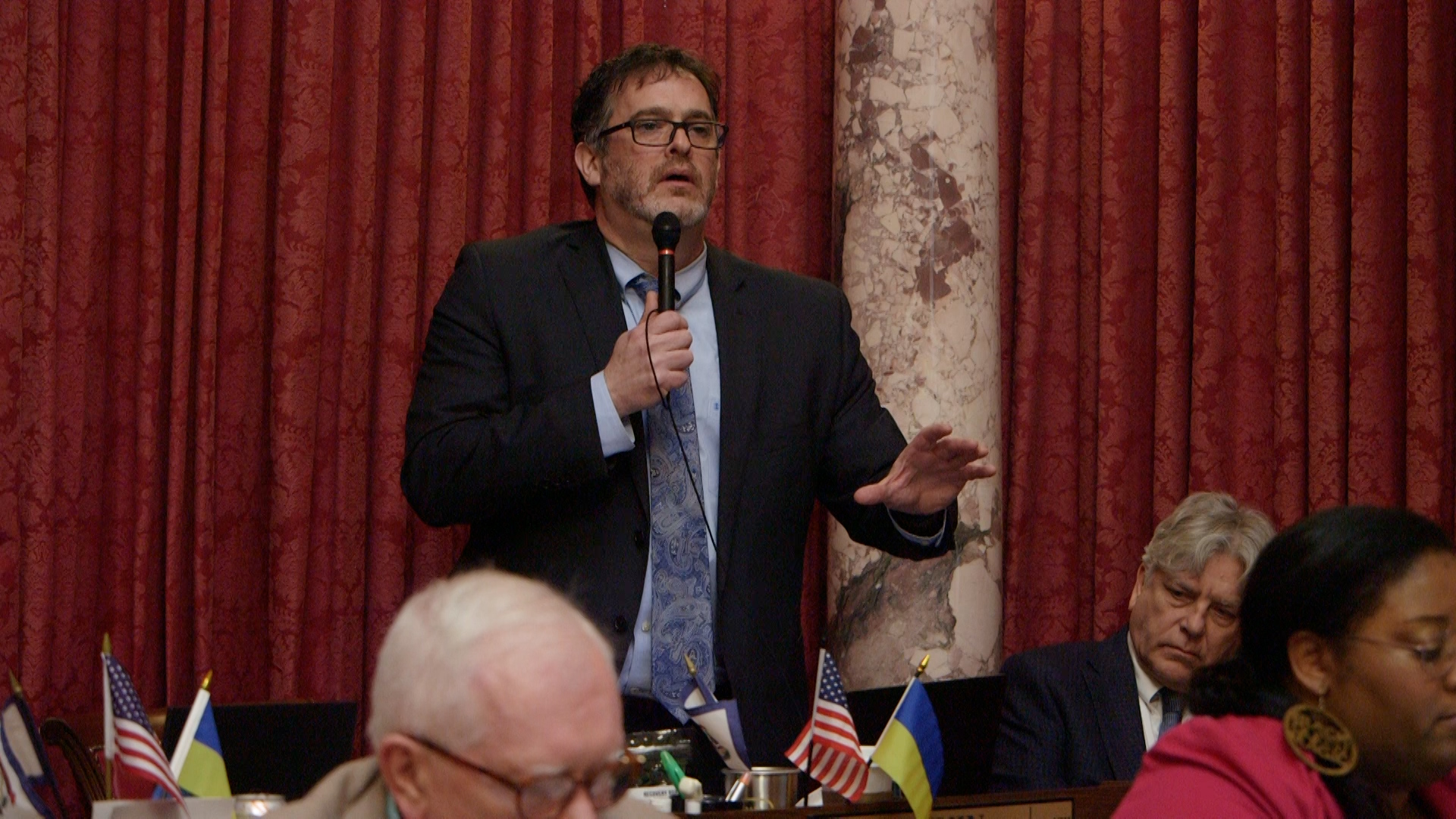On Tuesday, the West Virginia Democratic Party (WVDP) Chair Mike Pushkin, D-Kanawha issued a letter to Gov. Jim Justice, urging him to launch an immediate and thorough investigation into the West Virginia Department of Health and Human Resources (DHHR) handling of a particular child neglect case.
Earlier reporting by Eyewitness News revealed two children were found living in “devastating conditions” in a shed, with minimal facilities and inadequate care, leading to felony child neglect charges against Donald Ray Lantz and Jeanne Kay Whitefeather.
A recent Freedom of Information Act request by West Virginia Watch indicates that no travel records exist from Child Protective Service (CPS) workers confirming that they never visited the home despite multiple complaints from neighbors about the well-being of the children.
“The neighbors in this close-knit community out in Sissonville, the neighbors had been repeatedly calling CPS and at least we don’t see any kind of evidence that CPS responded to that,” Pushkin said. “To me, that’s very troubling and that warrants an investigation.”
In the letter, the WVDP states that they believe this CPS case is not an isolated incident but a symptom of a larger systematic issue within the state’s child welfare system.
“They can’t produce any documents to show that they actually responded, which would lead us to believe that they did not respond to these calls,” Pushkin said. “Is this an isolated incident? Or is this more part of just a culture of complacency or competency over there? And if so, is it possibly due to staffing shortages?”
Pushkin noted Justice’s “flat budget” as a possible reason behind CPS understaffing and shortcomings.
“Now the legislature and the governor can pat each other on the back for passing flat budgets and creating these artificial surpluses over the years,” Pushkin said. “But what does that really mean? It very well could possibly mean that we aren’t meeting essential services that need to be provided to the state, very least of which, would be taking care of children in the state’s custody. If we can’t do that, what can the state government do?”
Ongoing Litigation
DHHR employees and Justice are defendants in an ongoing class action lawsuit, originally filed in 2019, that alleged the state had violated the constitutional rights of more than 6,000 kids in the state foster system.
Allegations include the state failing to protect children, overburdened CPS workers, and leaving kids to languish in the system without any permanency plan.
Plaintiffs in the suit, A Better Childhood, a New York-based nonprofit, along with Shafer and Shafer and Disability Rights West Virginia, recently asked for sanctions in the case due to lack of evidence retention from the defendants.
The motion accuses the DHHR of “deliberate indifference” to due process claims brought by the attorneys representing foster children against DHHR.
Justice’s chief of staff, Brian Abraham, said in October, that the emails were deleted because of the Office of Technology’s protocol to delete the emails of employees who’d left their positions with the state.
“This administration was unaware that there was a policy in place at the Office of Technology to delete the emails of employees who left employment with the state of West Virginia,” Abraham said. “So there’s no basis whatsoever for any allegation that emails were intentionally deleted from any agency.”
Abraham added that the administration was not sure when the policy began or who enacted it, but said they are investigating this state-wide policy.
Marcia Robinson Lowry,the lead plaintiff in the case, said the defendants knew the emails she sought were evidence in the case.
“We don’t know whether anybody destroyed them willfully, or whether it was just more questions of competence and thoroughness on the part of the state, the state runs right now a very, very dysfunctional child welfare system,” Lowry said.
Dividing the DHHR
During the 2023 Legislative Session state lawmakers voted to divide the DHHR into three separate departments to increase transparency and improve outcomes in foster care. The new departments go into effect on Jan. 1.
There will now be a Department of Human Services for programs like Child Protective Services, a Department of Health and a Department of Health Facilities for facilities like state-run hospitals. Each agency will also have its own secretary to lead the agency.
The new secretaries are Dr. Sherri Young, incoming secretary of the Department of Health, Dr. Cynthia Persily, incoming secretary of the Department of Human Services and Michael Caruso, incoming secretary of the Department of Health Facilities.
Pushkin voted in favor of splitting the department but has voiced concerns about the efficacy of the split in improving health outcomes for West Virginia.
“Well, you know why I voted to split up the DHHR to three separate departments have often said, unless we really address the culture there,” Pushkin said. “Instead of having just one large dysfunctional department, we’re going to wind up with quite possibly three, slightly smaller, dysfunctional departments, until we really start prioritizing what’s important.”
